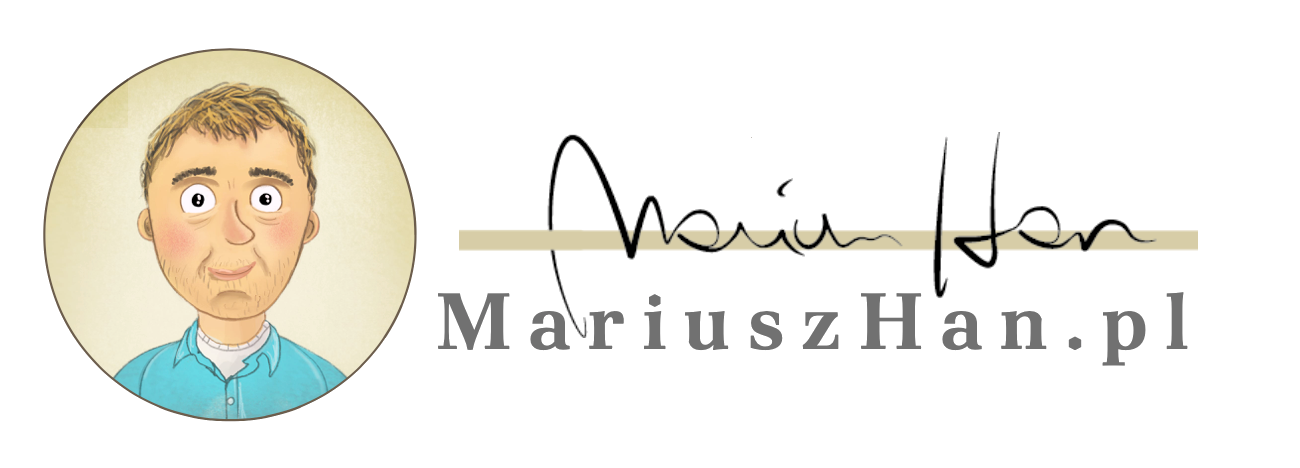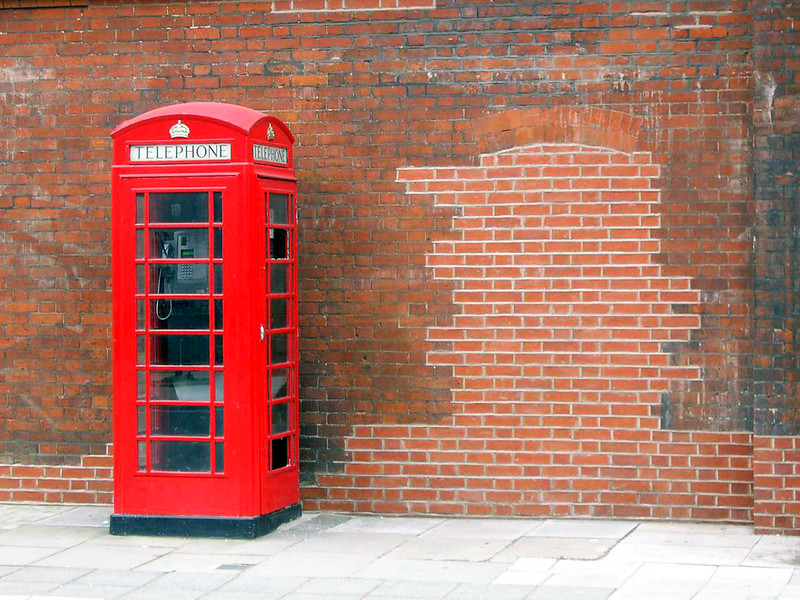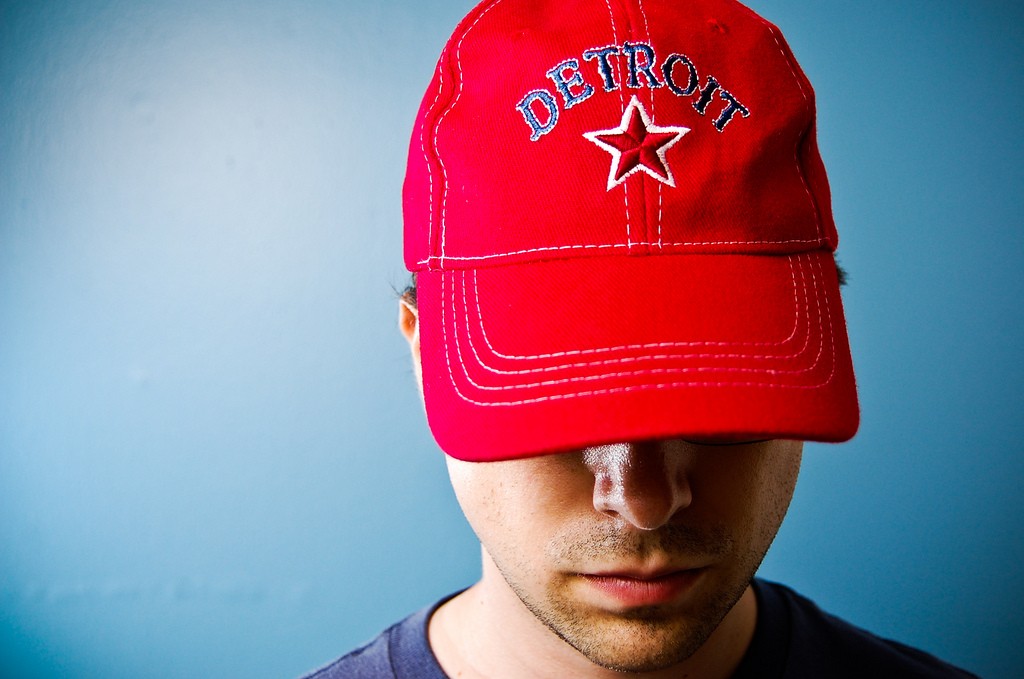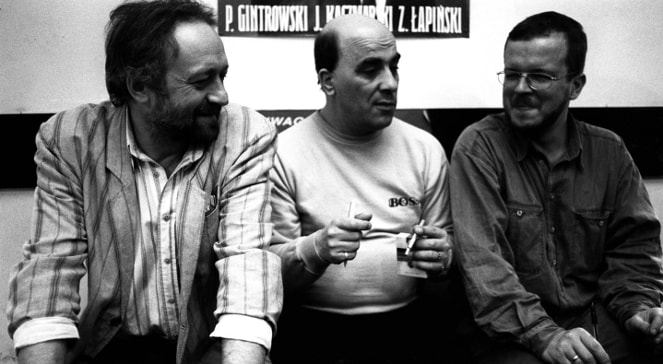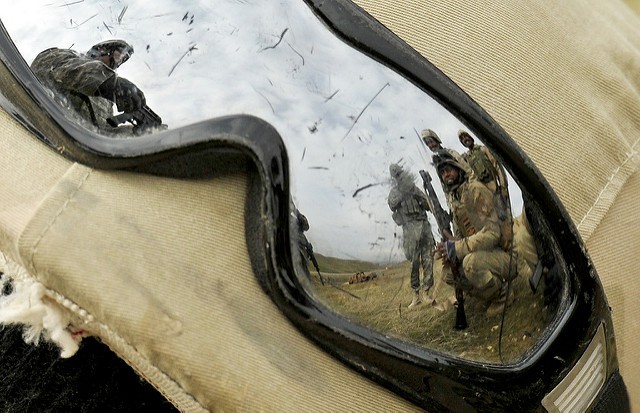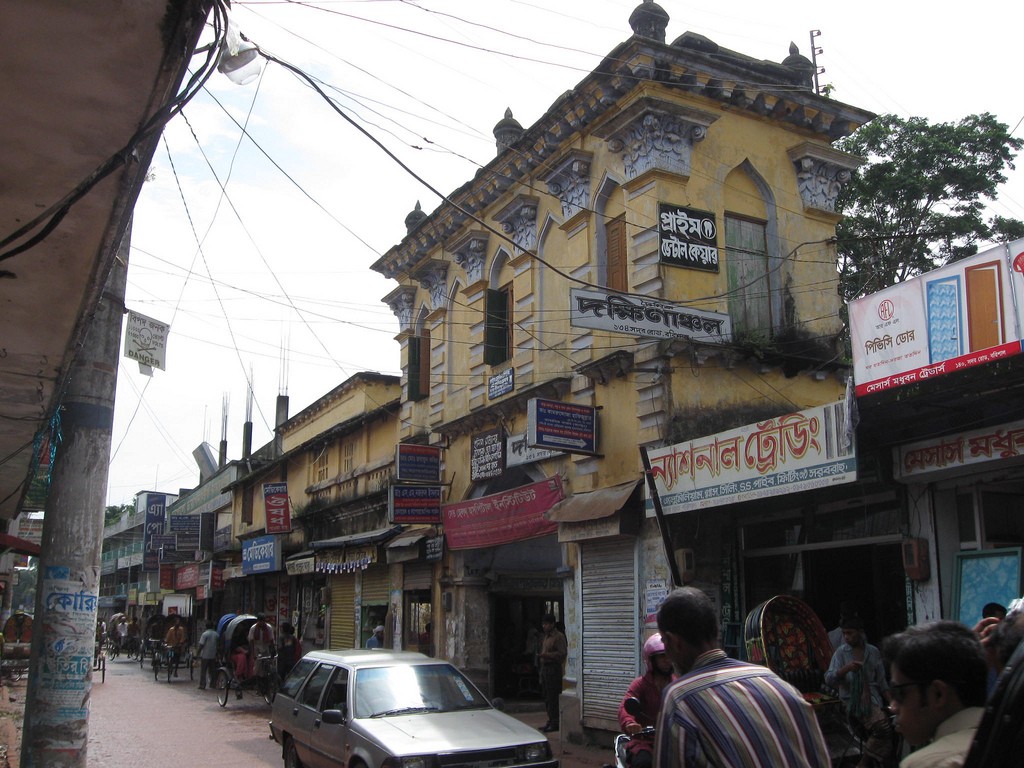I was born in Poland, the country located between Germany and Russia in Europe. Tyranny still takes place in our history. I grew up hearing stories of my family and my neighbors talking about World War II, concentration camps, slave labor and deportation to Siberian camps. My grandmother and mother barely escaped being executing by Nazis. After the fall of the greatest totalitarian sociopolitical systems of tyranny (Nazism and Communism) the Polish people began to seek the reasons for the genocide, the economic decline, the social, cultural and political conditions in our country. They are looking for a ‘small piece of the answer’ so that our new democracy, entered into at the end of the twentieth century in Eastern Europe, would not become tyrannical. To prevent this, the Polish people questioned objective values, the place of man in the present world, the basics of human rights in the interest of the peace in the world and role of government. This question belongs to everyone because Polish people discovered that a tyrant and tyranny can destroy a person’s individuality, creativity and morality. With these dilemmas we entered the twenty-first century.
In 1980’s the Solidarity Movement[1] was largely responsible for changing the border between East and West in Europe. The symbolical destruction of wall between East and West Germany started a new episode in European history. The Iron Curtain (“Iron Wall”) and relations between Russia and America changed too. Everybody knew that something new was coming. Some people were skeptical but almost everyone was very optimistic. Today not many people remember an important fact in the media history of this conflict – one of the biggest factors in the fight against the communist government party in Poland was alternative underground music. The Walls (Mury) was the first album made by an influential Polish trio – Jacek Kaczmarski, Przemysław Gintrowski and Zbigniew Łapiński. It gave hope to an entire generation. Their songs were very popular at that time, especially among the young people. Students listened to them because of their philosophy, patriotism and message of hope. You could say that everything started with The Walls album. It is identified with the beginning of the phenomenon in Poland named Solidarity Movement. All of the original songs from this album have significant historical and political backgrounds and have become deeply embedded in cultural tradition of independence. The songs on this album contributed to the enormous passion of Poland younger generation for change during the hated communist era. The Walls was never intended to be the official hymn of the Solidarity Movement. Even though this was not Kaczmarski’s intention, as the leader of the trio and creator of this song, he became an unofficial instrument of social revolution.
Poland and reality in 80’s.
Poland’s reality in the 80’s was identified with two people: John Paul II and Lech Wałęsa. A very important moment which changed Polish life was the conclave that elected Karol Wojtyła as a Pope John Paul II (1978). Another was the beginning of the Solidarity Movement (1980) which was created by Lech Wałęsa. These two men stepped onto the world stage at a time when the economic, political and cultural life in Poland was in bad shape. Everybody talked about it on the streets, in bars, at home and at church. Conversation was not always easy at this time in a Communist state. Some people discussed the situation loudly; some only to the people they really knew very well. The secret police were everywhere and our life was like in Orwell’s 1984. Everyone knew everyone else’s business. As a boy, I remember always looking for something we couldn’t find in the news as reported in the official media. Daily news in Poland, as presented on radio, television and in newspapers was significantly different from the life we experienced. The government news outlets always told us that Poland was wealthy, brimming with well-being, with many important international connections and friends (read Russia), with a good economy and a strong currency. But the reality was different because in the stores we could buy only bread, cabbage and alcohol (not even wine or beer, but Russian vodka which was part of the communist brainwashing of Poland).
Polish people like music. It was understandable then that music became the independent medium helped us to understand the past, present and give hope for our future. As a child, I remember the movie The Prohibited Songs (Zakazane piosenki) directed by Leonard Buczkowski in 1946 that played for the first time in the movie theatres in 1947. The story of this movie is about World War II where the Polish people fought for their independence in their capitol Warsaw. The story started in September 1939 and chronicled the time until Independence Day in May 1945. The hero of the movie is a musician – Roman Tokarski – who tells the audience the story of his life. Roman, his sister and their friend created a street band. They helped to create underground opposition and they distributed a history of events different from the propaganda of the German occupation. They organized sabotage, provided guns for insurgents during The Warsaw Uprising and found food for partisans’ living in the forest. But the most powerful tools in their arsenal in their fight against the German army’s occupation and Gestapo were songs, especially patriotic songs. They were most welcome because they promoted independent thinking and gave hope to the people during the difficult days of the ruthless German occupation. This movie is still enormously popular in Poland even today. It’s a symbol of hope for a better tomorrow.
Almost 50 years later, Poland was still an occupied country. At that time we had over 150.000 Russian soldiers located in many bases around our country. Everyone knew that our life was controlled by the government in Moscow. Media – newspapers, radio and television – were very ideological and directed entirely by the Communist Party in Warsaw. On our border to the west, we were faced by East Germany (NRD) which was also fundamentally a Russian controlled government. Poland was caught between two Communist powers and had little hope of becoming more democratic or independent.
Songs written and performed underground by the musical trio of Kaczmarski, Gintrowski and Łapiński were subversive forces in an alternative medium designed to mobilize the people and fight against the communist government with its corruption and terrible economic, political, and cultural domination of Poland in the 80’s. These three Polish bards supported the Solidarity Movement, tried to change the mentality of the Polish people and give them some hope for a better tomorrow. They patterned their work on examples from the past like the movie The Prohibited Songs and from Russian singers like Bulat Okudzhava or Vladimir Vysotsky who found a way around socialist propaganda in which all the peasants were happily on the barricades fighting capitalism. Avoiding Stalinist propaganda – the approved art of the Soviet Union – they managed to sing about the actual situation – which involved admitting the poverty of the country.
Another event whose influence was enormous was the first visit on April 13, 1967 in Conges Hall (Sala Kongresowa, Warsaw) by the British rock band The Rolling Stones. Rock music in general[2] affected both the thought and the art of Poland. The two Rolling Stones’ concerts took place in the venue where the communists in general held their rallies. The Stones broke the rules of the Eastern Europe by being the pioneers of Western rock in the communist East.
As a young boy – and later as a student – I grew up with all these songs. They shaped my understanding of the world more deeply than the official ideology and I hear them now in my head long after the official propaganda has faded. I recorded many of these songs on my fathers’ tape recorder bought illegally in Germany by a family friend. I have good, formative memories of this strange but very creative time. This is why writing about my experience of these powerful alternative songs which changed Polish life in Poland in late 80’s and in the beginning of 90’s is more than just an academic exercise for me.
The word ‘communism’ comes from the Latin word communis, which means common or general. One of basic foundations of the communist system is dialectical materialism. The total domination of Communism, as Hannah Arendt has said, “serves the ghastly experiment of eliminating, under scientifically controlled condition, spontaneity itself as an expression of human behavior and of transforming the human personality into a mere thing, into something that even animals are not.”[3] The ultimate goal is to shape individual consciousness to meet the needs of a controlled society. The communist ideology had a utopian character because it contained the postulate of the radical equality of rights, expressed in law and also cultural life. In theory, this ideology proclaimed the idea of authentic community and brotherhood of people. However, what was most important in creating this system was overcoming individualism. Private property was not allowed and, with that, the very existence of privacy is challenged. Arendt explained that “privacy in every sense can only hinder the development of social ‘productivity’ and that consideration of private ownership therefore should be overruled in favor of the ever-increasing process of social wealth.”[4] This is why this system had to overcome individualism in society.
With the suppression of the individual, creativity dissolves. John Stuart Mill (1806-1873) is the author of an essay named On Liberty, published in 1859. His opinion, a classic of libertarian philosophy, speaks of the tyranny of the majority. If you can control the majority, then you can control everyone, even their creativity. Under the communist system, the Polish people had a saying – “Whether I work or not, I receive from the same money from the government.” In this way, creativity as a passion was destroyed. What would it get you? The responsibility of the individual was destroyed, to quote Arendt, by “the liberal economists themselves who had to introduce the ‘communistic fiction’, that is, to assume that there is one interest of society as a whole which ‘an invisible hand’ guides behavior of men and produces the harmony of their conflicting interests.”[5] Concerning the ‘invisible hand’ from my child experience I remember every Sunday morning, a television program called Teleranek. From 9:00 to 10:30, it was “sacred time” for every child. This program talked about life as it was happening in Poland. The last ten minutes of this program was about an “invisible hand”. The program showed “someone” (you never knew who), who helped a man, symbolic of society in a common life. We didn’t know who it was; we saw only the result of the work of this hand. The Communist system prepared children and young adults to be “invisible” in social contemporary life.
A consequence of the ideology of totalitarian systems in political life was the repression not only of its own society, but also the community of other nations. The foundation of the Nazi system was ruling over a world of one race, the Aryan race, in the leadership of the German nation over other nations. As well, Communism, inspired by Marxism, in the name of the proletarian revolution, aimed at the domination of one class over the world community. Both ideologies moved very quickly from “moral motives” (equalities of people, the social justice), to the domination over other nations in the name of the total modernization of the world.
Totalitarian systems are accurately described by a Polish priest and philosopher Józef Tischner: “‘Total totalitarianism’ forced man into the interior of the ‘state-machine’ and forced to this, he became like a cog in a machine … Totalitarianism brought with itself the sharp, immediate and outright startling experience of evil … Totalitarianism liberated in the people a cruelty which in the final settlement of accounts consists in a mysterious linking to evil. … Only as result of such a thing could come into being concentration camps, systems of social control, general lies and genocide. Totalitarianism brings out from man his worst powers, and finally morality of man and society were lost.”[6] Human morality was gone from society and human hearts. Instead of the morality Poles could only dream about normal life. The monopoly of news manipulation and systematic propaganda replaced the truth. Communists knew that song was always presented in Polish life. They tried to use this powerful tool to promote their ideology.
Songs and their tradition for Poles during Communism.
During the time of the Communist domination of Poland (Polska Rzeczpospolita Ludowa – meaning The People’s Republic of Poland) (1952-1989) the people of Poland had to celebrate three important dates: Labor Day on May 1 (Dzień Pracy), The Polish Committee of National Liberation on July 22 (Manifestacja Polskiego Komitetu Wyzwolenia Narodowego), and The October Revolution Day on November 6 or 7 (Dzień Rewolucji Październikowej). The most popular celebration was May 1st, Labor Day, celebrating work under socialism in a communist country. All schools and factories emptied into the streets to celebrate the unity between Poland and Russia. The whole country – villages, small and big towns – was decorated with flags. Usually there were Polish flags but for any Polish flag you could always see two red flags with the hammer and sickle – the Russian national flag. It was an open question for many people who was the actual owner of our country. On the streets you could see militia (who operated as the police force) enforcing the obligation of homeowners to hang flags on the roof or in the windows. People who were late with their flag received immediate reminders from the militia about this obligation. The flags needed to disappear before May 3 because it was May 3rd was Constitution Day – a day of Polish celebration which was not respected or recognized by the Russian government or their government in Poland.
As a child I remember May 1st as a colorful day. You could see lots of flags, crowds in the street, many portraits of Lenin and Stalin. I thought of this day simply as a holiday. As I child, I never thought about this day as a part of systematic propaganda scheme designed for the manipulation of human brains and thoughts. The message of all these banners and flags was the friendship between Russia and Poland was the best way to keep the freedom between our countries. Well, there is nothing wrong with the friendship – I always thought. The specially printed brochures were delivered to all participants. The permanent element of the May Day march were slogans about fighting for freedom, socialism, friendship between Poland and Russia – and all this experience was connected with songs.
The day before the celebration technicians came to lay cables. Next day, the Communist party transmitted revolutionary songs all day long over Polish radio stations. It was impossible to avoid because speakers were everywhere. During and after the Second World War, every town whether small or large had speaker systems to inform people about coming of German aircraft attacks. After the Second World War the same system was used to inform the people about potential nuclear attack. Patriotic songs were broadcast on this system. Their words were about how important work is for building socialism and Communism in Poland. The work was much more important for the good of the country than for any personal gratification. I remember many Polish army choirs and their songs. It was very important for the girls to be around Polish and Russian soldiers. They were proud to be close to these ideals of manhood. In stadiums, in the streets, you could see the prominent people from the local government. In the capitol, Warsaw, you could see army generals and many of the most notable people in Poland. Folk song and folk dance groups, the fire department, all local groups participated. The idea was to be together as a one happy family and celebrate our perfect communist system.
Because the wall between East and West Europe existed, many Polish artists had little contact with Western music. Russian has a musical tradition of streets singer/poets that was very strong. The most popular Russian poets and singer were Bulat Okudzhava and Vladimir Vysotsky. They played mostly in people’s houses. The listeners recorded their songs on their small cassettes recorders and the cassettes were distributed illegally. The quality of the recordings was not good. The subjects of their songs were very personal, taken from their own experience of life. Perhaps because of the personal nature of these songs, they were also universal. Almost all listeners identified themselves with what they heard. Okudzhava was identified with philosophical ideas of human life. Many Polish artists such as Wojciech Młynarski, Agnieszka Osiecka, Ziemowit Fedecki, Andrzej Mandalian or Andrzej Czech took many ideas form Okudzhava’s songs.
Vladimir Vysotsky was a different and original singer with his own style even though, starting out, he copied Okudzhava’s style. Later he was influenced by Woody Guthrie. Vysotsky created thousand of songs about the war, human behavior, and life as it really is. His language was a good break from the monotony of propaganda. It was very serious, very angry and seasoned with a great deal of humor. His low voice resonated with audiences and was the perfect instrument for his ideas. Of course many other Russian singers like Aleksander Galicz, Julij Kim or Aleksander Rozenbaum had been very important for Russian independent songs, but Vysotsky was the muse for Jacek Kaczmarski, the biggest and most popular singer/song writer and promoter of alternative independent song in Poland.
Trio: Jacek Kaczmarski, Przemysław Gintrowski and Zbigniew Łapiński and their alternative underground songs during the Solidarity Movement.
The trio, Jacek Kaczmarski, Przemysław Gintrowski i Zbigniew Łapiński, are the symbol of independent song during the martial law period in 80’s in Poland as well as being the symbol of traditional Polish art song. But to be clear we need to remember that Kaczmarski was the first one and the most creative individual from this trio.
Their first album was legal. Their first songs were recorded legally in the recording Polish Radio Studio The Walls (Mury) and Polish Records Studio – a solo album The Shout (Krzyk) created by Gintrowski. Later, the Polish SB[7] (Służba Bezpieczeństwa, Security Service) recognized the subversive nature of those songs. They were against the idea of “the socialism spirit.” This is why all later recordings of Kaczmarski and Gintrowski were distributed not legally.
I remember as a 13-year old boy duplicating the original tape and making a lot of copies and giving them to my friends. Of course it was not legal and dangerous for my family and me. I could have been suspended and sent to another school (for punishment, they usually would send children far away from their homes). My parent could have been sent to prison and lost their jobs as bad role models for their children. But, at my age, I certainly wasn’t thinking about consequences.. For me and for my friends it was only fun, nothing else. We wanted to do anything that would enliven our dull black and white reality. It was different when I was older. By the time I was 17, I realized the seriousness of the situation because I understood the political situation in Poland. As teenagers, almost all of us wanted to play against the government and the political, economic and cultural system we found ourselves in. I was doubly motivated because my parents were engaged in the Solidarity Movement in the church group they participated in. The local branch of the movement was led by Fr. Wiktor Adam. He was very engaged in the Solidarity Movement and many people named him “Wroclaw’ian Popieuszko” after Fr. Jerzy Popieuszko, the diocesan priest killed in October 1984 by the two secret militia officers because his speeches were considered dangerous for the communist system. He was also the chaplain of the Solidarity Movement and friend of Lech Wałęsa. Fr. Wiktor was a Jesuit priest and Superior of St. Clemens Dworzak Church in Wroclaw where my family worshipped. At his mass you could see thousands of people. In the crowd, you could also find a lot of Secret Police officers who recorded every word in the church. They also took pictures of the participants. Those pictures were used later as evidence against many participants as the tool to force them to enter the Communist Party and to be collaborators in the name of true socialism. For my family and me it was a very frightening and dangerous period of time. I always was scared when someone knocked on the door to ask for something. I was scared that maybe the militia had arrived to take my mother and father to prison.
The next significant album from the trio was The Remembrances (Pamiątki) created by Przemysław Gintrowski. All the cassettes of this album were distributed illegally and under the threat of punishment. Kaczmarski was the most creative force on this album. He created the texts and music which he played on guitar. Gintrowski usually created music (guitar and piano) and Łapiński was the piano player. He was the orchestrator creating beautiful background and atmosphere. These three albums: The Walls (Mury), The Museum (Muzeum) and The Paradise (Raj) were the most popular and recognized albums. In 1981 the martial law put an end to their work. Kaczmarski left Poland and traveled with his music around the world with Gintrowski still composing the texts and Łapiński creating the music. After almost ten years, when democracy came to Poland, they played together again. They recorded an album named The Walls in the Museum of Paradise. They reminded the audience of all the songs and music from the previous years. They said that:
“From the perspective of time (mostly all of those songs on this album) we sing about the same: about entanglement of the man in history, mythology, religion, and politics. And about the man who is looking and searching for his identity in this complicated world. This is why we named this album like this, because everyone long for the Lost Paradise, we build during our life a museum for it, where we find the same walls and barriers in our common situation of life.”
Their songs were a huge contrast to the constant propaganda of communism. They were about lies, censorship, mendacity, corruption – realities that did not exist in official texts and art. There was no way to speak about any of this except through music, composed clandestinely and circulated privately. Media was completely under the control of the government. These songs were our internet before there was an internet.
The Internet is a unique medium where totalitarian control is virtually impossible. The sharing of information can be spread to everyone. Music functioned that way in communist Poland. And, eventually, starting in the 90’s, the recording studio Pomaton EMI published Kaczmarskis’, Gintrowskis’ and Łapinskis’ songs legally. The only album of theirs which was recorded legally without any ideological opposition from the government was The War between Fasting and Carnival (1993). This post-communist album was their first and last recorded in free Poland. Kaczmarski wrote a lot of songs about this new reality of Poland and the new problems that came with new democracy. He kept the tradition of the independent alternative song alive.
To better acquaint a non-Polish audience with their work, I would like to write about some of the songs of Kaczmarski, Gintrowski and Łapiński and explain a bit of their context and content.
Examples of song created by trio: Kaczmarski, Gintrowski and Łapiński.
It is not possible to write in this paper about every song created by Kaczmarski, Gintrowski, and Łapiński. First, there are hundreds of them. Kaczmarski himself wrote over 200. Second, I want to focus on the most popular of the songs. Third, “De gustibus non est disputandum.” Everyone has a favorite. I would like to write about few songs which are close to me and important to the people I grew up with.
The Walls (Mury), created by Kaczmarski in 1978, was inspired by the singer Lluis Llach and his song named L’esteca (Pal). Llach was a Catalonian singer very popular because of his protest concert against General Franco’s regime in Spain. As in Poland, this was a musical artist facing a government controlled, propagandistic media monopoly.[8] The government canceled Llach’s the permit to sing publically during the demonstration . So he didn’t sing. The people sang the words and melody of his songs. Kaczmarski said one day that he was very impressed by Llachs’ song because he sang to over 10.000 people and they responded to him singing the chorus. In this moment he started to understand the power of independent, alternative song.
The Walls (Mury) song had become official hymn of Solidarity Movement and the fight song against the totalitarian regime. The author dared the audience not to be a static but rather creative and not fatalistic about the current conditions. We can change it life. We can destroy the walls around us and change this life for better. What is the most interesting about this song is that it was not explicitly against the communist regime. The theme of the song was to be an individual resisting all mass movements. When the song took on a life of its own Llachs’ song, he realized that this song was no longer his. When the people started to sing this song, it was no longer the author’s, but a song of the people. Everyone owned the copyright to this song. Kaczmarski was an individual. When the people sang this individual’s song at demonstrations, they had his experience.
The melody of The Walls (Mury) is almost the same as Llach’s song, but more hopeful. Llach said that people almost never sing the last verse of his song saying: “And the walls grow up, and the chain around our legs was still around them”. Kaczmarski changed this pessimistic episode, writing rather wit hope: “And the walls will fall, fall fall! And will bury the old world!” Kaczmarski was thinking about the walls surrounding around our personal lives, but many people discovered political implications and used it as instruction to create a real political movement and change the reality of life in Poland. It is very similar to Roger Waters who wrote his The Wall song about his life experience and his song was also used in concert as a symbol of the destruction of the wall between East and West Wall in Germany.
The Walls (Mury) song was very popular during the Solidarity demonstrations in Gdańsk in 1980 and especially popular for Polish emigrants. Solidarity Radio had this song on the air almost all the time promoting it as a symbol of independence, freedom and individuality in communist regime. Many times the government jammed the radio signal because of this song.
Kaczmarski was inspired by the Polish poets Zbigniew Herbert and especially Vladimir Vysotsky. Kaczmarski’s poem named From the Scene (Ze sceny) and Epitaph for Vladimir Vysotsky (Epitaffium dla Włodzimierza Wysockiego) are the examples of protest poetry. Kaczmarski also drew inspiration from the paintings. His very existential songs Encore (Encore) and Landscape View with the Gallows (Pejzaż z szubienicą) were inspired by Fiedotow and Bruegle paintings. Other songs like Pompeii (Pompeja) and Landscape after the Feast (Krajobraz po uczcie) were very connected with the history of Poland especially with time when Poland was dissected in the eighteenth century. Kaczmarski’s songs were also inspired by the movies. One of them is Casanova (Casanova) directed by Federico Fellini in 1976.
In short, he synthesized in song massive cultural influences – historical and contemporary – and found a way to galvanize a people – all the time through alternative media.
His songs were inspired from every place in the world and especially his own human experience of life. There were stories about freedom and prisoners, independence and occupation, war and peace, corruption and honesty, loneliness and hope, God and the devil. Kaczmarski said one day that his songs are ultimately all based on real human stories. They are stories about people like me and you set in real world situations with tragedy and happiness. His songs were not created for the people to indulge in romantic sadness, but rather to show the reality of life and give some hope to the human heart. Kaczmarski shared his experience with Gintrowski who was very glad to cooperate with Kaczmarski.
One of the most popular Przemysław Gintrowskis’ songs is Karol Levittoux song. This song is from the album The Stones (Kamienie) made in 1991 by Jerzy Czech. Gintrowski composed the music and played it on guitar. On piano, you can hear the playing of Piotr Rubik, the next generation’s song creator. The album The Stones (Kamienie) presented a dozen songs about historical Polish heroes. One of these heroes is a student of law, Karol Levittoux. He studied in Warsaw. In 1839, when Poland was occupied by Russians, he created in Łuków The Patriotic Association (Związek Patyriotyczny) which was a part of Association of Polish People (Stowarzyszenie Ludu Polskiego) created in 1835 by three polish patriotic activists: Szymon Konarski, Leon Zaleski and Alfred Zaleski. Karol Levittoux and his friend tried to organize the army against the Russian government and create freedom and independent for Poland. But the conspiracy was discovered by the Russian secret police and Karol was arrested in 1841. The Russians tried to get information about his collaborative. They wanted destroy this organization. Karol did not say anything to them about his brothers in arms. Finally when he knew that he could not longer keep secret the information because he was tortured, he set fire to himself in his bed. He died in this fire. The song story tells us about the last moments of Levittouxs’ life. At the end of this song we hear about the Russian response to this “unfortunate accident”. They cancel permission for prisoners to have light in their cells. After this event, many prisoners spend many months or even years without any light in their small and uncomfortable cells. After many years Karol Levittoux started to be a hero for the people who believe and fight for the idea of independence, freedom and patriotism in their country.
Zbigniew Łapiński was a musician, composer, pianist, arranger and conductor with Kaczmarski and Gintrowski. He was coauthor with many Kaczmarskis’ songs. The most popular of his songs was Christmas Eve in Siberia (Wigilia na Syberii) which is about Polish exiles spending Christmas Eve outside their country. The place they lived was terrible: cold, wet and yet with a small candle in the corner of the house as a symbol of freedom and the hope to someday come back home. They have little to eat, their plates are empty, and, even so, they await the coming of God. The song says: “We are not poor and sad. The handkerchief in our hands is for hay fever. We don’t have our traditional dumplings. But we have some bread and tea. … We look for ourselves and our life. We are together – what more do we need to wait for? Tomorrow our Savior is coming. … Again we will wish each other a piece of freedom”. The song is written about the place where many Polish people died, killed by Russian soldiers. Though dark, it still holds on to hope. The people in this song believe that they and their lesson will be not forgotten and each nation can learn from the suffering of others.
Łapiński’ original style created enormous beauty, aura and atmosphere during the group’s concerts. His piano arrangements made all the song very close to the audience. He had a stroke in November 2005 and he is still recovering. His contribution to Polish freedom through the beauty and bravery of his music is enormous.
Changes in Europe and what will be next?
From Aug 13, 1961 to November 9, 1989 the wall between East and West Berlin was the biggest symbol of the division of Germany and Cold War between USA and the USSR. Many people who tried to enter to the West side of Berlin, a symbol of freedom and democracy, were killed. Nobody knows how many people were killed during many years when escape seemed to the only way to freedom. Officially the number is given as 250. There is a lot of speculation about that number, but what is more important is that on November 9, 1989 is the Wall became a symbol of change in Europe. The wall collapsed after 28 year of existence. One year later, Roger Waters had a concert in Potsdam Square (Potsdamer Platz, Berlin, Germany) with other star musicians. He reminded the people of his album The Wall (1979) from The Pink Floyd when he and David Gilmour played their psychedelic and rock music. But The Wall was rather about psychological walls in our brain and was not connected with The Berlin Wall. There is some element here of using the wall for commercial and marketing purposes. But what finally matters is that the music also became part of the change that was actually and finally happening. Socialism and Communism created artificial borders in human life. Even though Roger Waters concerned his young life, his relationship with his parents and his own world, the connection was made. Again, an individual personal statement expands into the world of politics.
On June 2, 1979 John Paul II for the first time visited Poland as a new pope. Karol Wojtyła (his original name) was the first Polish – in fact, the first non-Italian or -Spanish pope for 450 years. His speech in The Victory Square (Plac Zwycięstwa, Warsaw, Poland) was the breakthrough moment in Polish history. Over five hundred thousand people applauded him for over 14 minutes. The most interesting part of this appearance was the dialog between the crowd and the pope in the square. When the pope talked about faith, believe, hope and changes, the crowed answer him with religious songs. Song was the medium which helped the people to communicate with John Paul II. The people sang: “We need Christ as King. We need Christ as the King. We need Christ as the Lord.” This song was the beginning of the end of the Communist system in Poland. This spiritual/musical dialog between the crowd and a one man was the beginning of enormous changes in Europe. And the Polish people knew after many years that song was the beginning of those changes. On June 4, 1989 the new election opened the door for the Solidarity Movement whose people started working in government. Lech Wałęsa was elected president of Poland. That night, November 9/10, 1989, the Berlin Wall collapsed. On December 25, 1991 the red flag with the hammer and sickle was taken down from the Kremlin in Moscow. It was the moment the USSR collapsed.
After many years there is a consensus among Poles – and even John Paul II agreed – that this event in The Victory Square (Plac Zwycięstwa, Warsaw) in 1979 was the decisive moment. This musical dialog united a country and changed the world. In 2009 over 78% of the Polish people believe that this first pilgrimage of John Paul II contributed to the establishing of the Solidarity Movement, the destruction of Communism and the emergence of a free Poland.[9]
In December 1990, Walesa was elected President of the Republic of Poland. The man who was an electric factory worker was now granted honorary degrees from many universities as well as the Nobel Prize. The media promoted him until the end of his second presidential candidacy, when Kwasniewski, the leader of SLD (the opposing Communist party), re-entered the Polish political arena. The official media, which maintained its Communist slant, created the next leader. Walesa, who was not educated, now became unnecessary. The man who sacrificed for his country for more than 30 years was misunderstood and rejected. In fact, media representations of him became contradictory and unflattering. At times, he is a hero, then he is a collaborator with the SB (Security Service). Because of conflicting media representations of Walesa, he is now both known and unknown, controversial, loved and deeply hated. Our former hero is now a persona non grata.
What happened to Walesa happened to all of our national “heroes.” Lifted up by the media, it is only a matter of time before the media destroys them along with all of the hopes that we invested in them. Every day, we are surprised and demoralized by sensationalist stories of scandal and corruption which undermines our trust in government and elected officials. We no longer identify with our leaders or political parties. In sum, media hasn’t helped us find future heroes – men and women – who incarnate our national values and identity. Instead, media destroys the hero and makes us deeply suspicious of virtuous deeds.
Summary
On April 2, 2005 media all over the world announced the death of John Paul II. For many Polish people, the clock stopped at 9:37 p.m. Not only was he a religion leader, but he changed the borders of Europe. Poland moved from east to west. After his death, the media announced that it was time for “The JP2 Generation.” A few months later many scandals in Catholic Church destroyed this atmosphere and people almost forgot about this holy man. Today many young people in Poland really don’t appreciate what it was that he accomplished. With his death, an era had passed.
The Solidarity Movement has also faded. Two present parties in Poland – PiS Party and PO Party which grew out of the Solidarity Movement – are always fighting with one another destroying the unity that had been achieved with negative emotions and personal animosities becoming stronger than rational discourse.
On March 23, 2003, singer/songwriter Kaczmarski was diagnosed with cancer of the esophagus.. Mainstream media tracked his sickness until he died on April 10, 2004 in Gdańsk. Many artists and good people organized concerts to support him materially during his very costly treatments. Kaczmarski never opted for surgery because he was afraid that he would lose his voice. He never sang again. He never gave another concert. After his dead, many Polish people realized that an era had passed. The time of Solidarity Movement was over. The time of independent song in Poland was over. On August 28, 2006, the President of Poland, Lech Kaczyński gave posthumously to Kaczmarski one of Poland’s highest orders: The Order of Polonia Restituta – The Order of Rebirth of Poland.
Poland entered the European Union on May 1, 2004 – just a few days after Kaczmarski died. After this, Polish people were faced again with questions about individuality, creativity and morality – this time in the Western European tradition. There are threats to individuality here too. Even the Polish language is threatened by entering into the European Union. Western Europeans would like to find ‘a simple language’ for all European nations – and it’s not going to be Polish. Western Europe is trying to create ‘one European culture” and that culture and its morality are often contrary to the culture and morality of Poland. This creates many heated discussions among advocates of the new reality from believers in the European Union and their opponents. Questions about the tyranny of the majority in the European Union replace questions about the tyranny of Communism – only this time, we do not have songs to lead the way.
Cabarets, independent songs, the underground life have vanished from Poland. Economically, Poland is a leader in Europe, but the mainstream media seems to think more about entertainment than the issues that inspired the singer/songwriters of the Communist era. The life of Polish people still uses the language of freedom, but the dominant concern is free market economy. Younger Poles are forgetting Walesa, John Paul II and especially three musicians: Kaczmarski, Gintrowski and Łapiński – people who helped Poland to be independent, brave, and proud. We have a lot of music now, much of it from other countries. Our borders are always open to something new. But in the same time, people of my generation think about past that it is really gone. They say: “Now, we have almost everything, but it is not the same…”
Today, our democratic Poland, dominated by pop culture, doesn’t realize how important the role of the alternative and independent music was in late 80’s. New technology allows us to download music any time we want. The secret taping of my generation is absolutely gone. The time where the concerts were illegal and underground is gone. We have music in the mainstream media constantly, but the time for alternative and creative songs is gone. The new generation of singers has their eyes set on pop stardom and not much more.
Music is now a moneymaking industry.
Once it made history.
Jacek Kaczmarski was a very important person in my life even though I never met him personally. I participated only in one of his concerts and listened his song from small audiotapes. But it was enough to change my life, change my point of view and change my feeling for human relations. When I was a young boy my generation felt like a slaves serving Russia. Polish history is a permanent fight. Our country had this struggle for over a thousand years. All of the history of Poland is a fight for independence. Kaczmarski and his songs taught us this lesson in a time when no one else could. His song named Katyn (2007) is about a Russian NKWD massacre of 21.768 Poles in 1940. When this could not be spoken about, he sang it. He reminded us that we are not slaves. That we are free. And that freedom will always be a struggle for the Polish people. His songs taught me to enter that struggle.
The Walls, Pink Floyd
He was inspired and young, they were a legion
He gave them strength with his song, singing that dawn is near.
They lit a thousand candles for him, smoke rising over their heads,
He sang it was time for the wall to fall,
They sang together with him:
Pull the bars from the walls!
Drop the chains, break the whip!
And the walls will fall, fall fall!
And will bury the old world!
Soon they knew the song by heart and only the melody without the words
Carried the old meaning, shivers through hearts and heads.
So they sung, clapped to the rhythm, their applause sounding like gunshots,
And the chain was a burden, the dawn was delayed…
And he still sung and played:
Pull the bars from the walls!
Drop the chains, break the whip!
And the walls will fall, fall fall!
And will bury the old world!
And they saw their numbers, they felt their strength and it was time,
And with the song that the dawn is near, they marched into the streets;
They destroyed monuments and uprooted pavements.
This one is with us! This one is against us!
Who’s alone is our worst enemy!
But the singer was also alone.
He looked at the steadily marching crowds,
In silence he listened to the thunder of their steps,
And the walls grew, grew, grew
The chain dangled at the feet…
He looks at the steadily marching crowds,
In silence he listens to the thunder of their steps,
And the walls grow, grow, grow
The chain dangling at the feet…
——————————
[1] Solidarity, Niezależny Samorządny Związek Zawodowy “Solidarność” is a Polish trade union federation founded in September 1980 at the Gdansk Shipyard, and originally led by Lech Walesa
[2] Please to know more about watch the Polish documentary movie named Zew wolności (Beats of Freedom) directed by Leszek Gnoinski, Wojciech Slota in March 12, 2010. This movie is about the beginning of the Polish rock music and a difficulty in the 80’s where pop culture was prohibited and associated with modern and not welcome movement which can destroy communist system introducing freedom of self expression.
[3] Hannah Arendt. (1994). The Origins of Totalitarianism, New York, p. 565.
[4] Hannah Arendt. (1998). The Human Condition, Chicago, London, p. 67.
[5] Hannah Arendt. (1998). The Human Condition, Chicago, London, pp. 43-44.
[6] Józef Tischner. (1992). Wiara w mrocznych czasach, Kraków (Znak), p. 6. (translation by myself).
[7] SB, Służba Bezpieczeństwa is a “Security Service“, functioning as Secret Police in Poland since 1956 to 1990.
[8] Concha Mateos. Commodity or Right. Laws that Regulate Communication in Spain and America. In: Huff Mickey. Philips Peter. Censored 2011. The Top 25 Censored Stories. New York. 2010. p. 374.
[9] Retrieved December 10, 2010, from: https://ekai.pl/wydarzenia/raport/x20544/polacy-kluczowa-rola-jana-pawla-ii-w-odzyskaniu-wolnosci/
